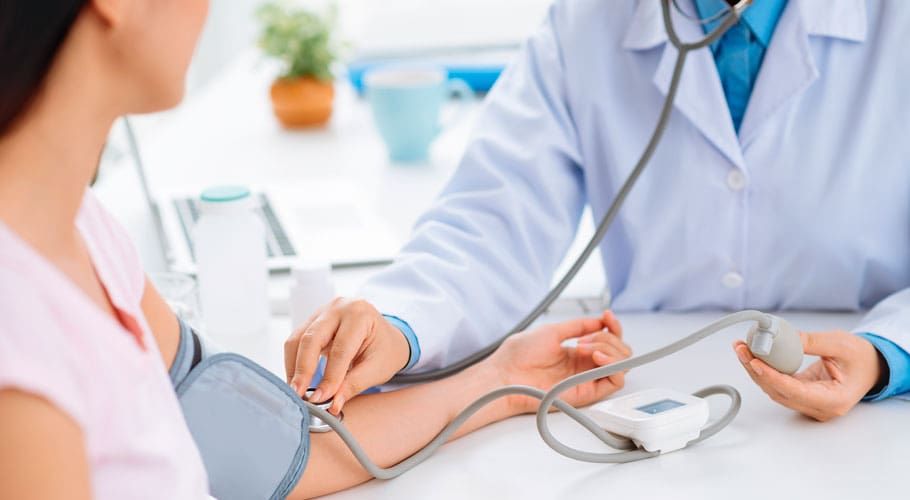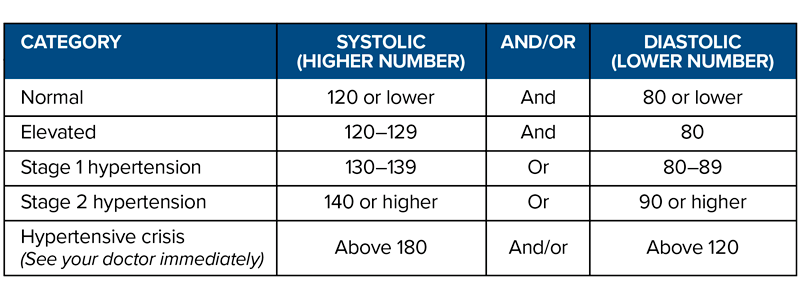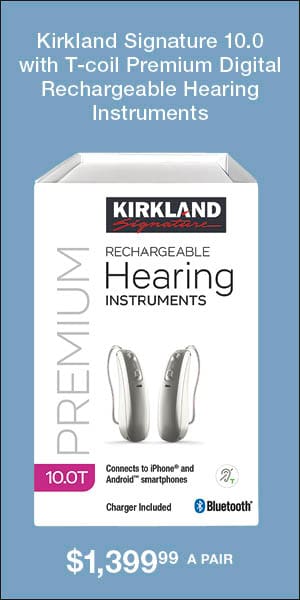
Pressure sensitive
Reducing high blood pressure can have a variety of physical and mental health benefits
Most of us already know that high blood pressure (HBP) is the root of many health issues, such as heart disease, stroke or kidney failure. More evidence is now showing that, in addition to those ailments, high blood pressure in middle age can increase the risk of dementia in later life. A study published in The Lancet Neurology suggests that hypertension in people as young as 36 is linked to poor brain health later in life.
Lowering the pressure
The good news is that adopting healthy lifestyle changes can significantly lower blood pressure naturally, even without medication, and may reduce the risk of these issues, from heart disease to dementia.
Keep it off. A healthy weight is an effective way to lower blood pressure. “Because there is more mass to pump blood through [when one is overweight], the heart works harder, and this can increase your blood pressure,” says Dr. William Li, a physician, scientist, author and CEO of the Angiogenesis Foundation. Even 10 pounds of weight loss can reduce your blood pressure—according to a 2016 study published in the American Journal of Hypertension, contributing to a drop in systolic and diastolic blood pressure by an average of 4.44 and 3.57 millimeters of mercury (mmHg, the standard unit of measurement for blood pressure), respectively. (See “Know your numbers.”)
Exercise. Reduced sitting time and increased physical activity is the optimal treatment choice for people with high blood pressure. Aerobic exercise such as walking, jogging, bicycling, swimming, water aerobics and rowing can strengthen your heart. The American Heart Association recommends 150 minutes of moderate-intensity aerobic activity or 75 minutes of vigorous aerobic exercise every week. Consult with your doctor before beginning an exercise program.
Reduce stress. When under stress, the body triggers the fight-or-flight response. The response constricts the blood vessels that make your heart beat harder and faster, increasing blood pressure. Practice mindfulness, exercise regularly, take up (or continue) journaling, participate in leisure activities and spend time with friends and family to relax and ease the tension. Cut out or cut down on alcohol, smoking and caffeine, which can increase feelings of anxiety and stress.
Improve your diet. A 2017 study published in the journal Hypertension indicates that the Dietary Approaches to Stop Hypertension (DASH) diet plan can lower HBP within a week. The DASH diet primarily limits sodium to one teaspoon of salt and includes heart-healthy fiber, magnesium, potassium and calcium-rich foods that lower blood pressure. Nitrate-rich foods, especially beets and spinach, relax blood vessels and lower blood pressure. Berries, fatty fish, pomegranates, beans, lentils, olive oil, pumpkin seeds and yogurt are other heart-friendly foods referenced in the DASH study.
And skip the salt shaker. “The American Heart Association recommends less than 2,300 milligrams of sodium per day, and even less—1,500 milligrams—in people who suffer from HBP,” says Li. “Swap or cut down on salt and add spices like garlic, rosemary, ginger, or lemon or lime to make flavors more intense with less salt.” Watch out for foods high in sodium, such as processed foods, cheese, seafood, olives and restaurant-prepared meals.
Supplements. There is clinical evidence that some supplements with magnesium, potassium and vitamins B, C and E may help lower blood pressure. L-arginine, an amino acid, helps the body produce nitric oxide that naturally lowers blood pressure and protects blood vessels, which is key to brain and heart health, says Li.
Healthy lifestyle changes can lower your blood pressure and reduce the risk of heart disease. Always check with your doctor to discuss a treatment plan that’s right for you.

Understand blood pressure numbers to prevent the risk of hypertension. Blood pressure is measured as both systolic (top number) and diastolic (lower number). The systolic number is the pressure exerted on the arteries when the heart beats. The diastolic number is the pressure when your heart rests between beats.—SN

Costco Connection: Healthful foods, exercise equipment, dietary supplements, blood pressure monitors and prescription medications are available in Costco warehouses and at Costco.com.



